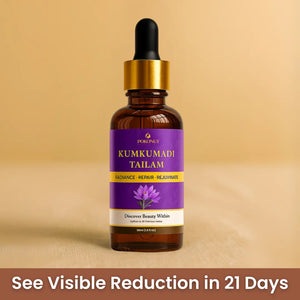Is Coffee Good for Pregnancy?

Medically Reviewed By:
Dr. Mousumi Dash, BAMS
Written by Our Editorial Team
For many women, a morning cup of coffee is a daily ritual. But once you’re pregnant, that ritual comes with questions. Is coffee good for pregnancy or does it carry risks for your baby and your body?
The answer depends on how much you drink, when you drink it, and how your body responds to caffeine. In moderation, coffee is generally considered safe. But pregnancy changes everything, your metabolism, your sleep, your hydration and caffeine plays into all of that.
Here’s what you need to know about drinking coffee while pregnant, along with simple, natural alternatives that can help you stay energized without worry.
What Caffeine Does During Pregnancy
Caffeine is a stimulant. It affects your nervous system, raises your heart rate, and temporarily boosts alertness. But during pregnancy, it also crosses the placenta and reaches your baby, who cannot break it down the way you can.
That’s why experts recommend limiting your intake rather than cutting it out completely. If you’re asking if coffee is good for pregnancy, the real answer is yes but only in controlled amounts.
How Much Coffee Is Safe During Pregnancy
Most health authorities agree that up to 200 mg of caffeine per day is safe for pregnant women. That’s equal to about:
-
One 8 oz cup of brewed coffee
-
Two cups of instant coffee
-
Three to four cups of black tea
-
One small latte or cappuccino
Remember, caffeine also shows up in:
-
Green tea
-
Chocolate
-
Soft drinks
-
Some over-the-counter pain relievers
Always count your total daily caffeine, not just your coffee intake.
Why Some Women Cut Back on Coffee During Pregnancy
Even though moderate coffee is considered safe, some women choose to reduce or eliminate it altogether. Here's why:
-
Increased sensitivity: Some pregnant women feel jittery or nauseous after drinking even a small cup
-
Sleep disruption: Caffeine later in the day can affect your ability to rest
-
Hydration concerns: Coffee is a mild diuretic, which may lead to increased bathroom visits and dry skin
-
Risk management: Some studies suggest a link between high caffeine levels and low birth weight, especially in the first trimester
If you’re unsure how your body reacts, it’s best to start slow and pay attention to how you feel.
Natural Alternatives to Coffee for Pregnant Women
If you’re scaling back on caffeine or skipping it altogether, you don’t have to give up your morning ritual or energy boost. Here are a few safe, natural options:
Herbal teas
Tulsi, fennel, or ginger teas are caffeine-free and can help with digestion, nausea, and calmness. Just confirm with your doctor which herbs are safe for you.
Coconut water
Refreshing, hydrating, and packed with electrolytes, it’s perfect for mid-morning or post-walk hydration.
Protein-rich snacks
Pair almonds, dates, or fruit with a small spoon of nut butter to support steady energy without spikes.
Movement
Even light stretching or a 10-minute walk can naturally boost circulation and help you feel more alert.
Does Coffee Affect Your Skin During Pregnancy
Some women notice dry or itchy skin when they drink too much coffee, especially without increasing water intake. While caffeine isn't directly harmful to your skin, dehydration can make conditions like stretch marks and belly itchiness worse.
That’s why it’s smart to balance any caffeine with extra hydration and external care. Apply our Pokonut Stretch Mark Cream daily to protect your belly as it stretches. It’s made with coconut oil, manjistha, and kumkumadi—all pregnancy-safe and deeply soothing to dry skin.
Quick Coffee and Pregnancy Guide
|
Question |
Answer |
|
Is coffee good for pregnancy |
Yes, when limited to 200 mg of caffeine per day |
|
Best time to drink coffee |
Morning or early afternoon to avoid sleep issues |
|
Safer alternatives |
Herbal teas, coconut water, fresh fruits, short walks |
|
Should I switch to decaf |
Yes, if you want the taste without the full caffeine hit |
|
Can coffee cause skin dryness |
Indirectly yes, if it leads to dehydration |
Make Coffee a Conscious Choice
You don’t have to give up coffee completely during pregnancy, but you should know your limits. Being mindful about how much you drink, when you drink it, and how your body responds is what really matters.
Pair your morning cup with good hydration, light activity, and daily belly care using Pokonut Stretch Mark Cream to support your skin as much as you support your energy.
Pregnancy is about finding balance. A little coffee can still fit into that—with care, awareness, and smart choices.
FAQs
Q. Can I drink coffee every day while pregnant?
Yes, but limit your caffeine intake to under 200 mg per day. If you feel anxious, dehydrated, or struggle with sleep, consider cutting back further.
Q. Is coffee safe during the first trimester?
It’s safest to reduce caffeine during the first trimester when your baby’s organs are forming. One small cup a day is fine for most women, but always check with your doctor.
Q. Is decaf coffee better during pregnancy?
Yes, decaf is a good option if you enjoy the flavor but want to lower your caffeine intake. Just remember, decaf still contains a small amount of caffeine.
Q. Does coffee help with pregnancy fatigue?
Temporarily, yes. But the energy boost is short-lived and can be followed by a crash. Try pairing light movement, hydration, and rest for more lasting energy.
Q. Can coffee affect skin or cause itching?
Not directly, but caffeine can dehydrate your body, which affects your skin. Hydrate well and use products like our Stretch Mark Cream to maintain skin comfort.
About Doctor :
























